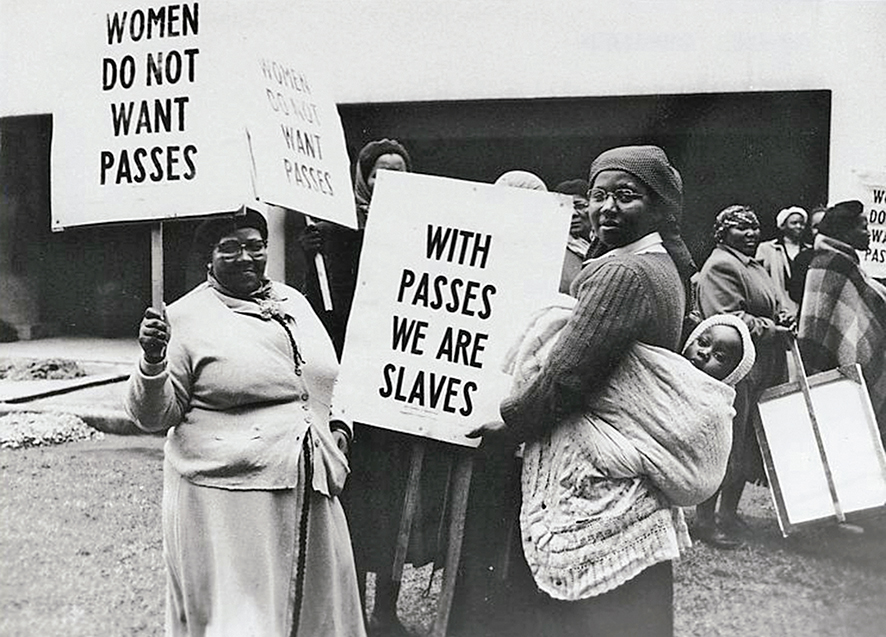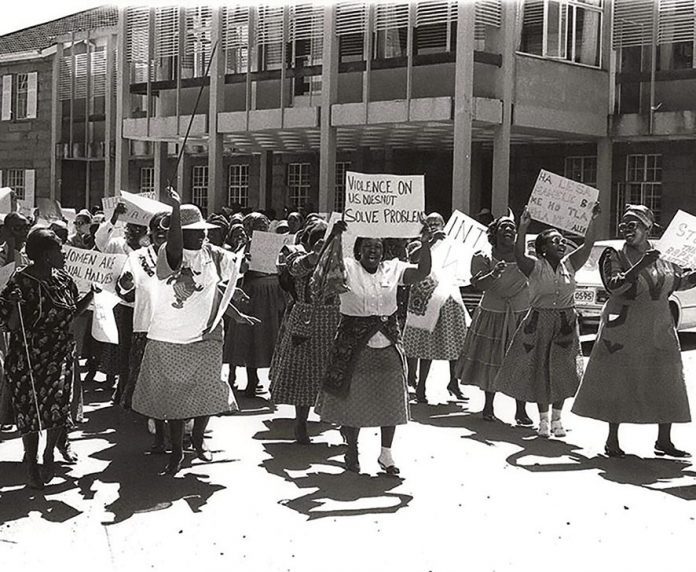Johannesburg – Fifteen moons into democracy, president Nelson Mandela delivered the first instalment of our Women’s Day speeches.
In it, he announced the tributes which “must go to our women”, and congratulated his one-year-old government.
He also expressed his conviction about “the constructive contribution that our women will make” at the UN Beijing Conference of September 1995.
However, Madiba’s oration was rather thin on gender analysis. Instead, it was littered with thinly disguised commandments for women to do this, and to be that, for the sake of building “one people and a united country”.
His most women-centred message was the declaration of August 9 a national holiday. Since 1995, 26 more, similarly framed speeches, have been inflicted upon us, one year at a time. Amidst the requisite songs and slogans, our presidents have taken particular pleasure in reciting the names of the imbokodos of 1956, never forgetting to lionise themselves and their governments, while committing themselves to “the struggle to emancipate, empower and liberate our women”, a la Thabo Mbeki in 2007.
Every single year, the low-intensity war against women is lamented, condemned and regretted with much moaning and mourning, and little else.

We thought there was new energy when President Cyril Ramaphosa convened one of his many historic summits, namely the national gender summit, in 2018.
When the National Strategic Plan on Gender-based Violence and Femicide was launched in 2020, the nation sat up and paid attention.
But by mid 2020, gender-based violence (GBV) showed up as the other pandemic before, behind, besides and beneath the Covid-19 pandemic, our innovative lockdown levels notwithstanding.
The higher the lockdown level, the more intense the GBV scourge became, it seemed.
The only thing that almost outshone the GBV pandemic was the blight of the PPE corruption, the end of which we have yet to hear. It soon became clear that, while summit declarations, steering committees, GBV response funds and glossy strategic plans are the proverbial steps in the right direction, it will take much more than these to stem the tide of GBV and femicide.
Towards the end of his 2021 Women’s Day speech, Ramaphosa waxed lyrical as he conjured up images of “a society where women feel safe … where women are able to assume leadership positions … where women’s opportunities are not limited by social attitudes …”.
But in the end, he did not tell us how such a society can be built practically. One of the most evocative Women’s Day speeches was delivered by Mbeki on the occasion of the reburial of Sarah Baartman in 2002. Mbeki deftly juxtaposed celebration with grief, the past in the present and the present in the past, the burial of bodily remains and the burial of truths. He was unflinching in his condemnation of “those who treated [Baartman] with barbaric brutality”, including “the leading scientists of the day”, they, who plunged Baartman into “a voyage of misery and death”.
Acknowledging that “we cannot undo the damage that was done to her”, Mbeki called for a summoning of “the courage to speak the naked but healing truth that must comfort her wherever she may be”.
In 2021, part of the truth we must speak is that we just don’t have the policing, prosecutorial and judicial instruments capable of taking us to the “South Africa free from GBV directed at women, children and LGBTQIA+ persons” envisioned in the GBV plan.
Nor do we have the leadership.
Many of our leaders are so steeped in violent and patriarchal practices, they are not even self-aware. The same goes for many of our political formations. We don’t have the police, the prosecutors and the courts worthy of the trust of millions of victims of GBV.
We don’t have the will and the courage to disconnect our economy from its immoral and historic backbone, namely, the slave labour of black women.
We can shout such seemingly excellent but actually fraudulent slogans as “equal pay for equal work” until we are white in the faces.
It will not change the fact that, overall, the work women do is more superior in quantum and quality.
Often, women do the work without which little other work could be done. They do the unseen and unrecognised work, poorly paid, if at all. Until and unless we speak these “naked truths”, and go on to address them, our annual national jamborees trivialise the strides made by the likes of Kimpa Vita, Queen Nzinga, Eva/Krotoa, Sarah Baartman, Nontetha Nkwenkwe, Nontsizi Mgqwetho and Charlott e Maxeke, among many others.

• Professor Maluleke is a senior research fellow at the University of Pretoria Centre for the Advancement of Scholarship. Follow him on Twitter @ProfTinyiko
To read more political news and views from this week’s newspaper, click here.
Follow @SundayWorldZA on Twitter and @sundayworldza on Instagram, or like our Facebook Page, Sunday World, by clicking here for the latest breaking news in South Africa. To Subscribe to Sunday World, click here.
Sunday World



